Bees as a natural opulence on the Garden Route south Cape coast of Africa
If you want to know the health of your local ecosphere or natural environment, then look at your bees. Do you have lots of bees around to pollinate the plants in your area? In this edition of The Shape of The Cape with your host Julescape on the Garden Route, along the south Cape coast of Africa, I have found a local treasure which has made world class top level standards in the field of honey harvesting. However, colony collapse disorder is a devastating 21st century ailment that has affected beehives globally. You may have heard of it as the name was coined in 2006, according to Wikipedia. I decided to visit a local off-grid homestead recently and met the owner harvesting their honey manually, which led me to do some more research on this concerning syndrome hitting our planet of late.
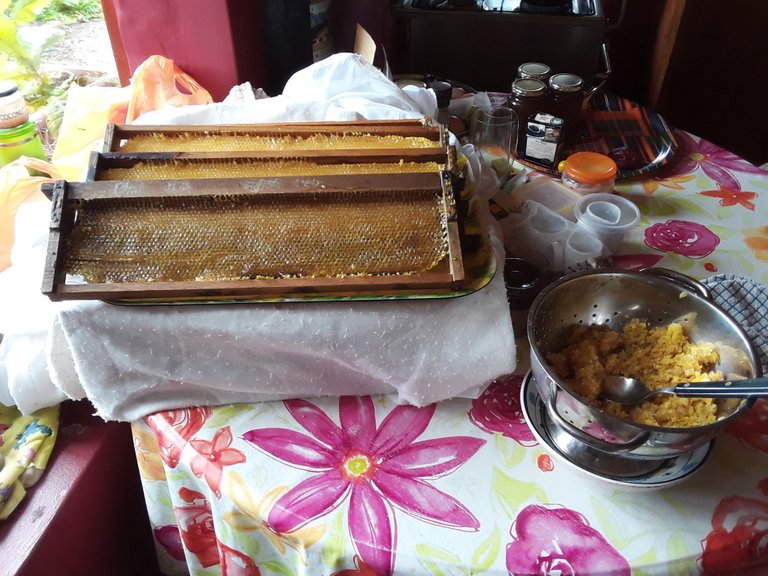
Beekeeping or “apiculture” as it’s known, is an ancient art and although vegans may have understandable reservations, the honey is known to be a medicinal healing product as well as a delicacy to eat. Prices in the shops have doubled for honey over the past few years, if not tripled, and it may be due to the global collapse of so many hives. It occurs when the worker bees simply disappear but leave the queen and carers with new babies behind.
Regardless of whether you wish to consume honey or not, bees are a crucial part of the ecosystem and of farming since they pollinate most of the plants that we may wish to grow for food. So at a friend’s local homestead here in the Garden Route, she keeps some hives particularly for that purpose. I was able to see the removal of the supas – strips of support that fit into the hive box upon which the bees can build their waxy base and produce new offspring as well as honey. The bees are gently and effortlessly removed from the supports and they are removed for cleaning or harvesting, while new supports are put into the hive in their place. It seems to be a gentle symbiosis between farmer and bee colony, where the one supports and nurtures the other with no abuse or karmic repercussions of any sort.
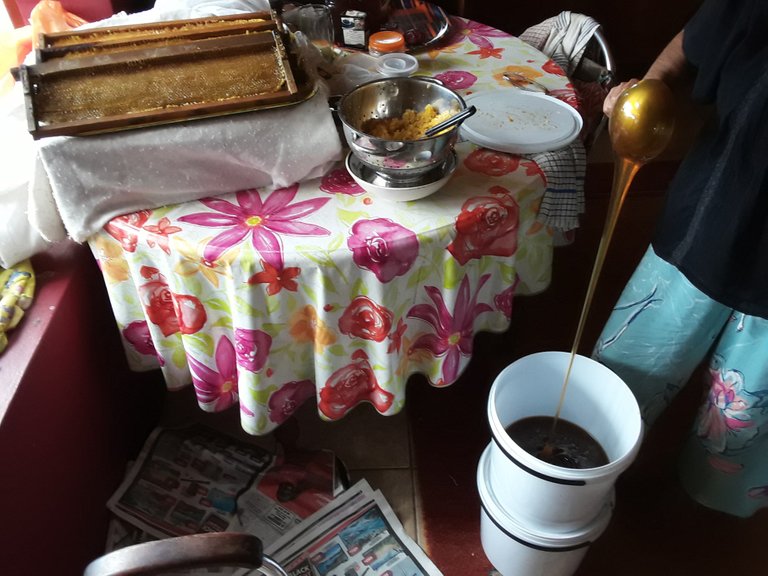
In fact with the massive global collapse of beehives, apiculturalists (if that is the correct term) are much in demand and now act as major support to the bees, helping to revive their dwindling numbers. I know of two such people in this area who travel around from farm to farm, helping the local farmers to maintain their hives, ensuring the health and vitality of the bees there. Actually this beautiful area known as the Garden Route, on the south Cape coast of Africa is world renowned for some of the best honey on the planet.
This Knysna honey, from the Knysna forest area here, has won awards internationally and experts in the field of bee-keeping may have heard of it. Somehow colony collapse disorder did not affect this part of Africa as badly as the other continents, and it could be a sign that life here is in an overall state of better health than many other places on the planet.
This is another symptom of the natural healthy opulence and vitality of this area of the world. I highly recommend a visit here if you need healing or rejuvenation of any sort. I will personally take you to this very same off-grid homestead where you can book a guest lodge right on the border of the indigenous forest, go for long walks there and even walk the home made labyrinth that had been recently carved out of the soil. As you may know, walking a labyrinth is a a particularly healing and meditative pastime for anyone.
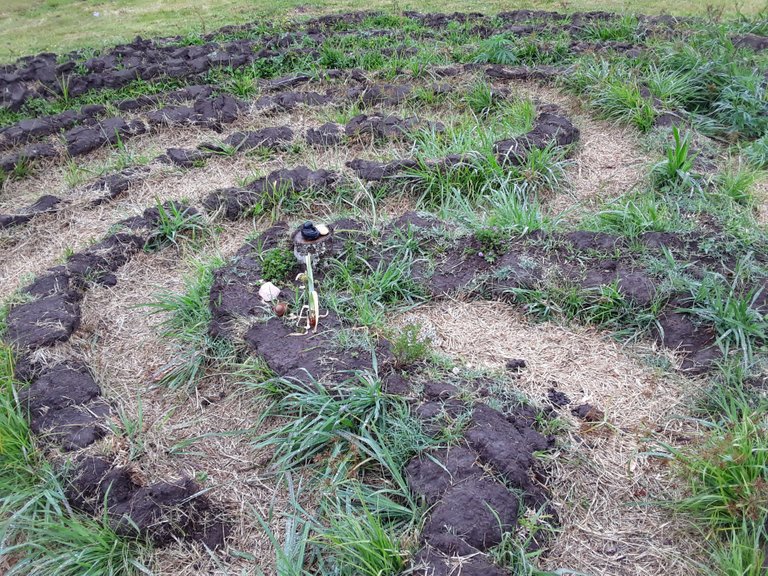
Now I no longer use honey much simply because it has become too expensive for my humble travel budget. When some countries around the world were experiencing up to 50% loss of overall bee population, the honey went up in price as demand outpaced supply. Worse though is the loss to plants who need the bees for pollination. And the plant loss is our loss, since we can live without honey but we can’t live without vegetables and grains.
Some farmers in the USA, are apparently obliged to hire bees for the pollinating services in season. The bee-keeper arrives with the hive and leaves it at the farm for enough time to do the important service and then leaves for the next farm, which has become an extra cost to the farmer, which leads to the knock-on effect of extra costs to us, the consumers, when we wish to purchase the produce at the market. So we are all affected by this global syndrome of colony collapse disorder.
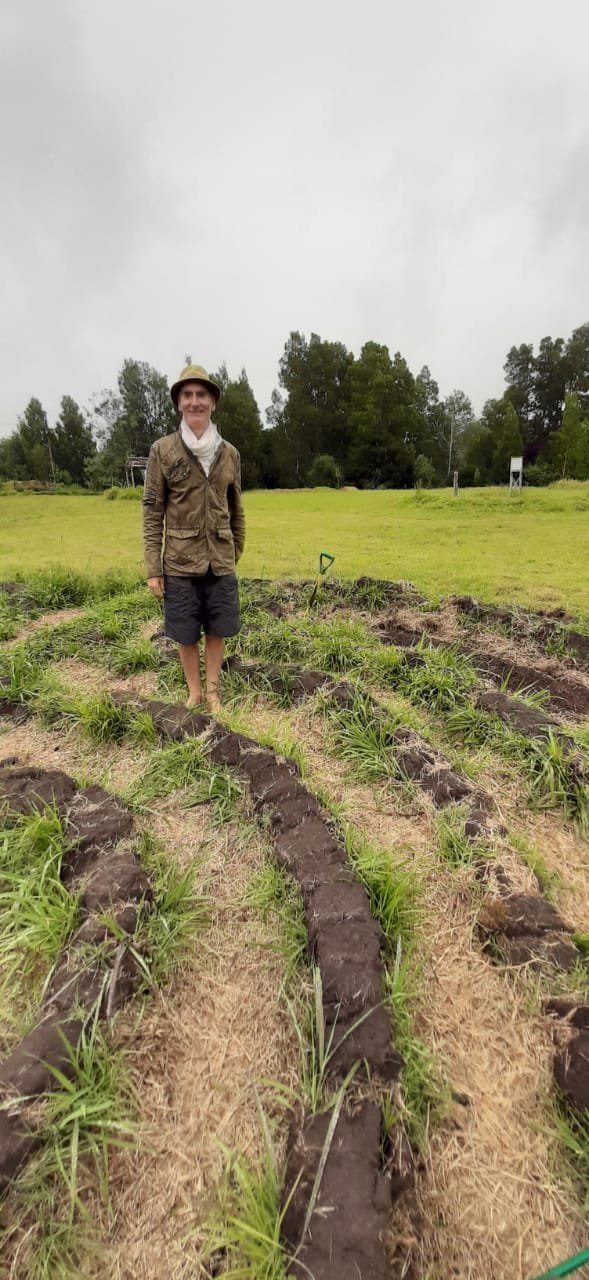
The unfortunate side effect is that China has been found to be selling fake honey to the rest of the world. I don’t know the details but apparently a watered down version of a honey-like substance is sometimes found on the shelves which looks like honey but is thinner and weaker, probably highly diluted. If you didn’t investigate, you may not even realize. Unless you were experienced and could immediately tell that this was not honey as it used to be.
The cause of this devastating colony collapse among bees globally is still uncertain but obvious causes are probably our toxic human bi-products like pesticides from villainous corporations like Monsanto. Another cause could be wifi or some similar unseen wireless transmission that travels through the air to run our communications systems nowadays. It may be affecting the radar or antennae of the bees, who depend on their internal homing devices for geolocation. Any massive wireless frequency transmitted by us humans may interfere with the navigation systems of the bees potentially. There may be some readers who have more detailed info on this which they could share in the comments for us all to learn from.
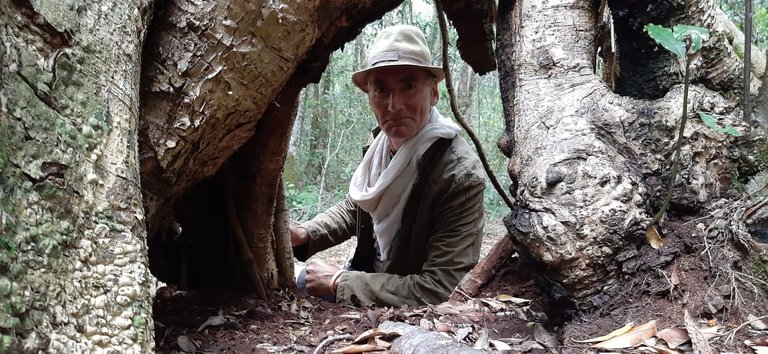
Fortunately this area on the south Cape coast of Africa is a goldmine for natural treasures of nature like world class honey, now that the rest of the world’s beehives are taking so much strain. Sometimes being off the beaten path, or somewhere remote and hidden like this, could be an advantage. Here locals are protected from the modern infringements on pure and healthy living simply by default, as the south Cape coast of Africa is about as far as one can get from the first world up north, or in Australia of course. So be sure to make a visit when the need arises. Your life may depend on it one day.
“If
the bee disappeared off the surface of the globe, then man would have
only four years of life left. No more bees, no more pollination, no
more plants, no more animals, no more man.”
Albert Einstein
View this post on TravelFeed for the best experience.
@tipu curate
Upvoted 👌 (Mana: 20/25 - need recharge?)
Congratulations, Your Post Has Been Added To The Steemit Worldmap!
Author link: http://steemitworldmap.com?author=julianhorack
Post link: http://steemitworldmap.com?post=bees-as-a-natural-opulence-on-the-garden-route-south-cape-coast-of-africa
Want to have your post on the map too?
Great post! I feel like the #ecotrain community would love to read it so you may want to consider adding the tag :)
Hey there @edouard thanks for the very good idea, much appreciated. I will use the tag in coming posts too.
Hiya, @itchyfeetdonica here, just swinging by to let you know that this post made into our Honorable Mentions in Daily Travel Digest #773.
Your post has been manually curated by the @steemitworldmap team and got an upvote from @blocktrades to support your work. If you like what we're doing, please drop by to check out all the rest of today's great posts and consider supporting us so we can keep the project going!
Become part of the Haveyoubeenhere community:
Congratulations @julianhorack! You received the biggest smile and some love from TravelFeed! Keep up the amazing blog. 😍 Your post was also chosen as top pick of the day and is now featured on the TravelFeed.io front page.
Thanks for using TravelFeed!
@elsaenroute (TravelFeed team)
PS: Why not share your blog posts to your family and friends with the convenient sharing buttons on TravelFeed.io?
I have curated your post, thank you for adding value to the blockchain! I love bees, they are gorgeous and hard working!